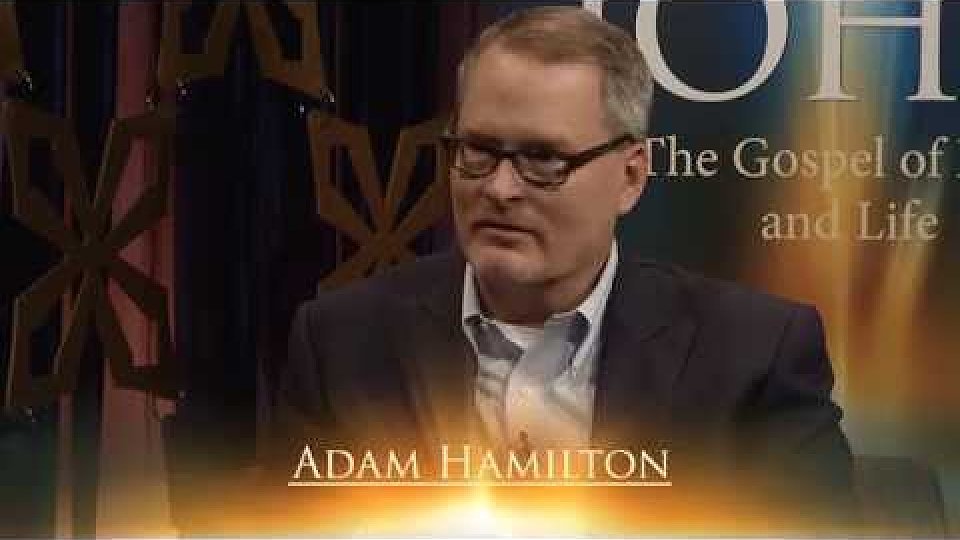Take the Lenten Challenge: Read and Study John This Lent
It’s the first full week of 2016—a fresh start to a new year.
While you may have made any number of “resolutions” this month, I’d like to offer you a challenge that will help you establish a new habit that will transform your life.
Commit this year to reading through at least one of the Gospels. Specifically, I challenge you to a 40-day read-through of the gospel of John during Lent.
Believe it or not, the Lenten season is only a few weeks away. Ash Wednesday is February 10 and is the start of Lent, which runs for 40 days until we celebrate Palm Sunday on March 20, followed by Easter Sunday on March 27.
How will you observe Lent this year? The gospel of John is the perfect Lenten companion. My latest book, John: The Gospel of Light and Life, will help you on your journey.
This book is divided into 6 chapters to help you explore the major themes of John. It is meant to be read alongside the Gospel.
With that in mind, the entire text of John is included. At the end of each chapter you’ll find a portion of the Gospel, and if you read each portion after you read the chapter, by the end of the book you will have completed the Gospel of John.
Each year at the Church of the Resurrection we challenge the entire congregation to read through one of the gospels, often during the 40 days of Lent. This year our congregation will be studying John together with sermons each week from John, and our small groups studying John together.
We have created several resources to help you and your church as you read through the Gospel of John. You can find those here.
Over the next few weeks I’ll be publishing excerpts from my new book, John: The Gospel of Light and Life, here on my blog. Recently I had an hour-long video conversation with Shane Raynor at Ministry Matters about John. You can view that conversation by clicking here or on the image above.
In John 20:31 we read, “These things are written so that you will believe that Jesus is the Christ, God’s Son, and that believing, you will have life in his name.” My hope is that the Gospel of John will help you to grow deeper in your faith and that through your study of this gospel you will find life in Christ’s name.
Today’s post is an excerpt from the Introduction to John: The Gospel of Light and Life.
Introducing John: The Gospel of Light and Life
John is unique among the Gospels.
We call Matthew, Mark, and Luke the Synoptic Gospels. Synoptic is a Greek word that means “to see together,” and it is appropriate here because these three Gospels are very similar.
They share much of the same material and general outline of Jesus’ life.
John’s portrayal of Jesus is markedly different from that of the Synoptics. Many of the events recorded in John are not found in the Synoptic Gospels. John’s Gospel is largely set in and around Jerusalem, whereas the Synoptic Gospels record Jesus’ ministry in the Galilee. Jesus sounds different in the Synoptic Gospels, where he speaks in parables and in a straightforward, plainspoken way. But in John, Jesus speaks in metaphors that are more obscure.
In the Synoptic Gospels, Jesus describes the kingdom of God and the ethical imperatives demanded in the Kingdom. (The Kingdom is mentioned seventy-five times in Matthew, Mark, and Luke.) In John’s Gospel, the focus is not on the kingdom of God (only mentioned twice), but on Jesus himself as the one who reveals God. The author of John presents Jesus as the source of life, and he wants to be sure we “get” this.
In Matthew, Mark, and Luke, Jesus calls people to follow him. In John, Jesus calls people to believe in him and to abide in him. Both following and believing in Jesus are important dimensions of Christian discipleship.
Clearly, we need the insights and invitation of both John and the Synoptics. None of the Gospels are, strictly speaking, biographies of Jesus. But John’s Gospel, more than any of the others, is something of a spiritual or theological commentary on Jesus’ life, death, and resurrection. We’re not meant to read it as a journalist’s or biographer’s account of Jesus’ life. In John, details of events and even the words of Jesus are not so much about what actually happened, though clearly they are rooted in what actually happened.
Instead they are about the meaning—the spiritual significance—of Jesus’ life. For this reason, I believe, Clement of Alexandria (a.d. 150–215) described John as “the spiritual Gospel.”
To find out more about why John wrote his gospel, how it differs from the Synoptic gospels, and the spiritual significance he hopes his readers will see, check out John: The Gospel of Light and Life and read the Gospel of John this Lent.





Comments
blog comments powered by Disqus